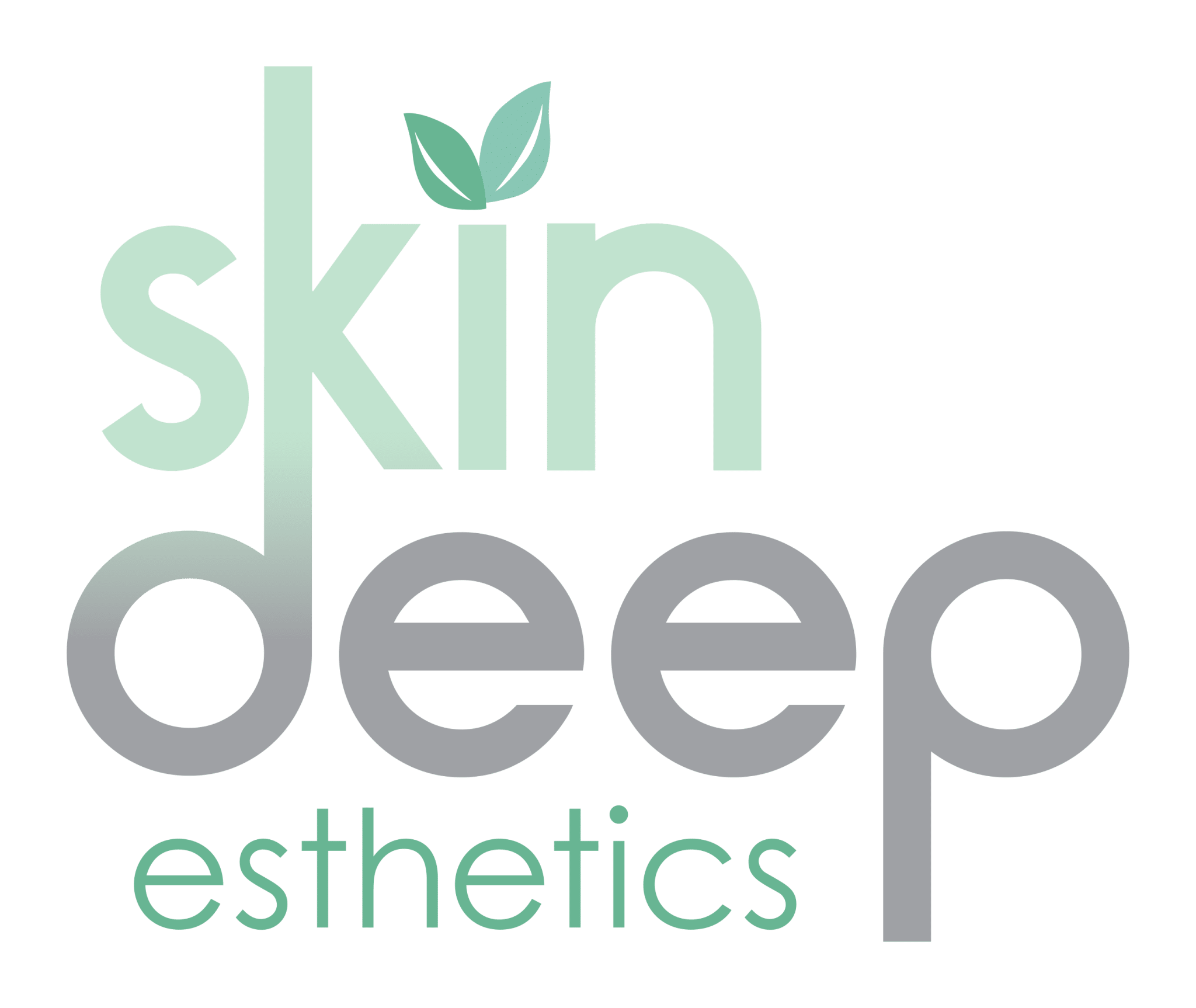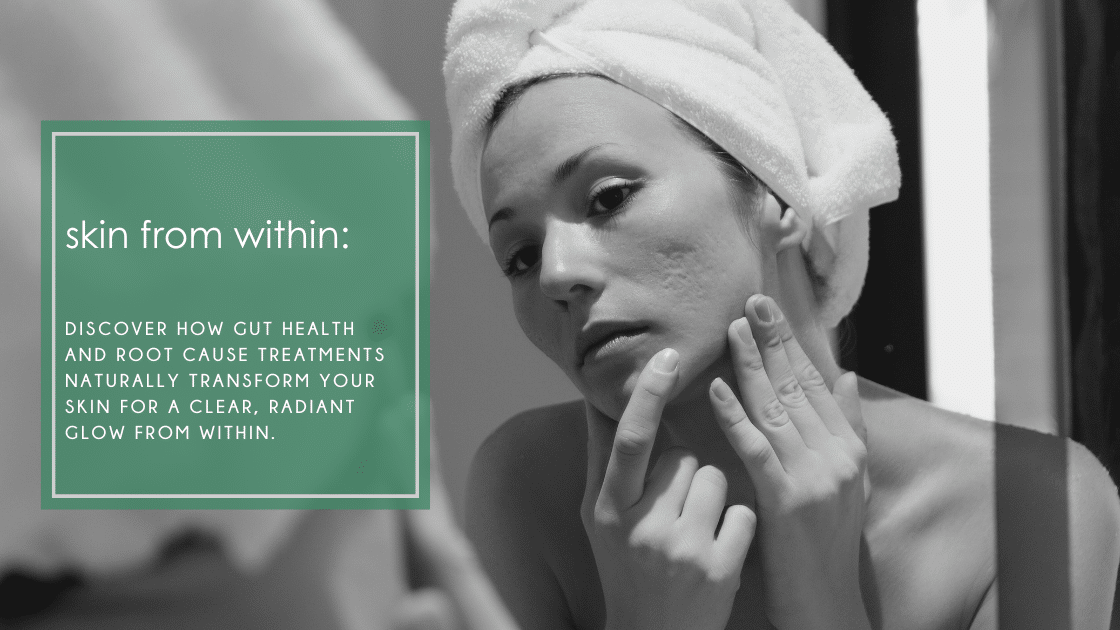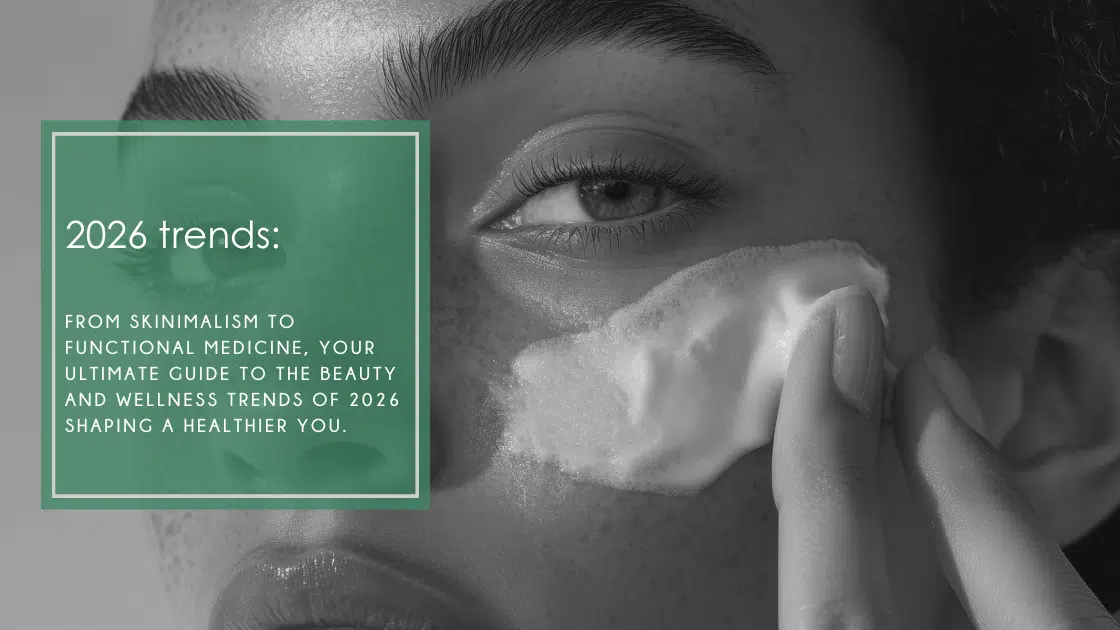Healthy Skin Starts From Within
Healthy Skin: Acne Isn’t Just Skin Deep—It Starts in the Gut
Our skin is the largest organ of our body, and it often reflects what’s happening inside. When there is a problem with our skin, we frantically run out and buy whatever we can to apply to our face to fix that blemish, redness, or dark patch. Yet we don’t even realize that our skin is telling us that something isn’t right inside. Our skin is a detox organ, and if we stop to pay attention to those persistent acne flare-ups that constantly plague our chin. But what if your skin is sending a deeper message? Healthy skin starts here.
Today, this blog is a bit longer because we have so much information to cover, yet we are just scratching the surface. We are talking about everything from our skin being a detox pathway, having its microbiome, face mapping, and how certain inflammatory markers on your skin can help you prevent future chronic illness. It’s time to look beneath the surface and uncover the root cause!
Is Your Skin a Detox Organ?
Yes. Our body removes toxins via the sweat and oil glands. The idea of vigorous exercise to stimulate sweat, along with saunas for detoxification, is correct; sweating does help your body detox. Studies show that toxins are more present in our sweat than in our urine. According to PubMed, “The overall finding of these studies was that many chemicals, including persistent organic pollutants, heavy metals, bisphenol A (BPA), and phthalate are excreted in sweat. Interestingly, the concentrations in sweat were often higher than that of blood and/or urine, and in some cases, chemicals were detected in sweat but absent in blood and urine. Such reports have led some to hypothesize that these chemicals are perhaps preferentially excreted in sweat to reduce the body burden.”
What is a Detox Pathway?
A detox pathway is a complex process of specific organs that work to convert toxic substances into less harmful substances that can be eliminated from the body. Our skin is considered a detox pathway primarily because it helps release toxins through oil and sweat, making it a crucial exit route in your body’s cleansing process. Other organs involved in the detox pathway include the liver, kidneys, colon, lungs, and lymphatic system. This is the path to healthy skin.
Is Acne and Gut Health Related?
Absolutely! Both the gut and skin have their own microbiomes and serve as barriers to toxins. When the gut struggles to eliminate waste, the skin often steps in, resulting in inflammatory skin conditions like acne. When you see an inflammatory skin condition specific to the same area of the face, this is when you need to take note that your skin problems may be coming from inside the body. This phenomenon is called face mapping, which can pinpoint internal triggers when breakouts appear repeatedly in specific areas.
According to PubMed, “Certain members of the gut microbiome respond to hormones secreted by the host [44]. The hormone-like pleiotropic compounds that are produced by the gut microbiome are released into the bloodstream and can act at distant organs and systems, such as the skin [44]. Numerous studies provided evidence for a profound bidirectional link between gastrointestinal health and skin homeostasis through modification of the immune system.”
If you’re looking for further details on this topic, visit our blog about acne and gut health.
Does a Healthy Gut Clear Your Skin?
Yes, healing the gut often results in healthy skin. If you can find what is triggering your gut microbiome to become inflamed and heal your gut, your skin will naturally clear up. This is what we refer to as finding the root cause. You can figure out if your gut is causing your skin problems in two ways: first, eliminate inflammatory foods such as gluten, dairy, sugar (read more about sugar’s affects on our skin here), and soy. You should notice your skin clearing up after about 2-4 weeks. Second, you can find a naturopathic or functional medicine doctor and have them run several labs on you to test for inflammatory markers, food sensitivities (which are different than allergies), biomarkers, and nutrient deficiencies. This method is more exact and can help create a personalized plan for you.
What is the Gut-Skin Axis?
The gut-skin axis refers to a pathway where the gut and skin communicate via the central nervous system. The fact that gut health has become more widely discussed as being related to inflammatory skin conditions means that both the medical and esthetic industries are starting to recognize the connection between these two systems. PubMed says, “The gut and skin barrier share surprisingly many features. The gut and skin are highly analogous to each other in purpose and functionality. Both organs are highly innervated and vascularized, as they are both essential for immune and neuroendocrine function. The gut–skin axis results from this resemblance”
What is the Microbiome?
The skin microbiome, also known as microbiota in medical terms, is a collection of bacteria, fungi, and viruses that live in a specific environment, such as the gut or skin. It maintains the skin barrier, protects against pathogens, and prevents inflammation. PubMed says, “The microbiome refers to the genomes present in a certain environment, meaning the accumulation of all their genetic material (i.e., DNA and RNA).”
How to Restore Your Skin’s Microbiome
When the skin shows a problem (acne, red marks, etc.), we immediately run out and start throwing products on it to stop the problem. Just like healing the gut, restoring the skin’s microbiome takes time, and you must be patient. There are many variances when it comes to the cause of skin problems. However, focusing on healing on both the inside and outside will give you the best outcome.
Internal:
- Increase protein, especially fatty red meat
- Eliminate inflammatory foods; such as gluten, dairy, and sugar
- Exercise to stimulate sweat and encourage detoxification
- Stay hydrated to support kidney detox
External:
- Use gentle cleansers both morning and night
- Exfoliate only once a week to encourage cell turnover and prevent clogged pores
- Hydrate with a moisturizer that is best for your skin type, morning and night
- Protect with sunscreen daily
How Does Stress Impact Our Skin?
Stress can manifest in many different ways. Anxiety and tension are physical and psychological responses to an internal or external stressor, which triggers a “fight or flight” response in the body. Stress impacts our nervous system and can cause a host of problems. According to Rupa Health, “Stress can significantly impact our skin health, and its effects manifest in various ways. One such way is through its interaction with the gut, often referred to as the ‘gut-skin axis.’ Stress may disrupt the gut’s normal function, leading to a condition known as ‘leaky gut.’ This, in turn, can contribute to skin inflammation as inflammatory substances escape into the bloodstream.”
Some ways to manage how your body responds to stress:
- Support your body with gut-friendly nutritional choices
- Practice deep breathing techniques and meditation to calm the mind
- Incorporate light exercise or yoga into your daily routine
- Prioritize a restful sleep
Autoimmune Disease and Healthy Skin
An autoimmune disease occurs when the body mistakenly attacks its own healthy cells. Tying autoimmune disease to the skin correlates to our gut health, because immune cells and the gut microbiome are connected. If the body has chronic inflammation via an autoimmune disease, it is going to show up on the skin. You may notice changes in the skin as redness, sensitivity, rashes, blisters, sun sensitivity, acne, eczema, and psoriasis.
Root Cause Approach to Healthy Skin
At Skin Deep Esthetics, we don’t just treat the surface; we uncover the root cause of your skin concerns. Breakouts, redness, and irritation are your body’s way of saying something deeper is out of balance. While topical products may offer quick fixes, true healing starts from within.
As an esthetician studying functional medicine, my mission is to bring this inside-out approach to skincare. Too many people struggle with acne without answers, but there is a solution. By addressing the source, we help you restore balance, rebuild your skin barrier, and achieve lasting, radiant results.
Here are some common causes of acne:
- Skin Microbiome Dysfunction: Using harsh cleansers, acne products, medications, and topicals that break down the skin barrier creates microscopic tears in the skin. This allows bacteria overgrowth, potentially causing acne.
- Hormone Imbalance: When your hormones are off, it can increase oil production. Especially for women who have low estrogen or progesterone levels, because an increase in androgens and testosterone stimulates oil production.
- Food Sensitivities: Eating inflammatory and processed foods creates an unhealthy gut microbiome and harms the permeable gut lining. This is similar to the skin barrie,r where nutrients, amino acids, vitamins, and minerals are leaking out of the gut into the body, creating inflammation. This inflammation presents in the skin. Rupa Health states, “Food allergies and sensitivities can lead to gut dysbiosis and increased intestinal permeability. One of the significant symptoms of a food intolerance is skin disorders, including acne.”
- Environmental Toxins: It is almost impossible to protect against environmental toxins; they are in the air, our food and water supply, and even in our homes due to chemicals in our cleaning supplies. Our body is able to process toxins and filter them out; however, with the amount of toxins present today, it is almost impossible for the body to completely rid itself of every toxin. Similarly to food sensitivities, the body has to process the inflammation by purging it through the skin.
What Can You Do to Help Your Skin?
It sounds overwhelming to eliminate everything at once. Start with foods, think about what you’re putting into your body, and see if you can start to eliminate processed or inflammatory foods such as gluten, dairy, and sugar. Aim to eliminate one item every 30 days and keep track in a food journal. The less harmful things that go into your body, the quicker healing begins. If you feel that this is not working, finding a functional medicine or naturopathic doctor is a great way to get complete testing done to help you understand what is causing certain symptoms.
If you’re ready to heal your skin, please visit our website to book an appointment today. We are here to help support your skin barrier while your body heals. If you have questions, please drop them in the comments below.




